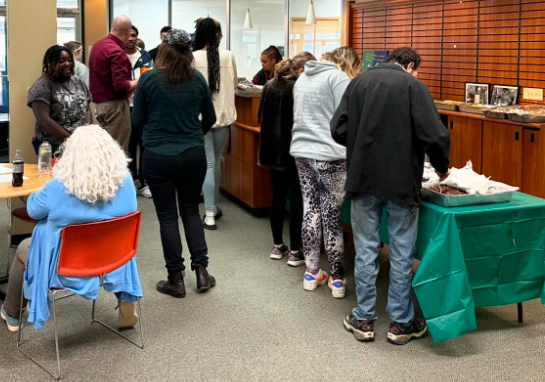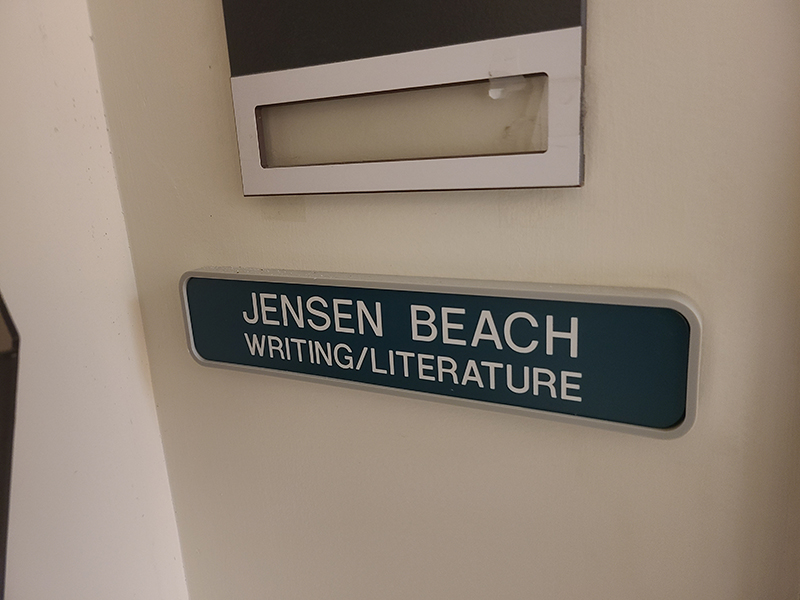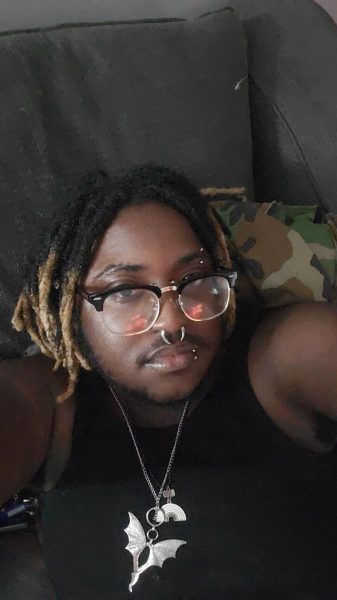On April 1, VTSU-Johnson held a Harambee, a discussion event for the campus community to bring awareness to problems and areas of improvement. This event, which is to become University tradition, gave students, staff, and faculty the opportunity to brainstorm solutions and improve the campus experience for everyone.
The meeting was attended by staff representatives from Johnson’s TRiO program, Student Activities, Athletics, Student Government, and Student Career services as well as a group of 20+ students. The event began with lunch before the discussion.
The first thing to be discussed was community thoughts and emotions about the aftermath of Optimization 2.0, which resulted in the removal of staff, faculty, and various programs from the campus. In line with other discussions, similar expressions of “hopelessness” were mentioned, with one student stating, “It feels as though nothing can be done.”
Prompted with questions concerning student involvement and participation in campus activities, students brought up problems with campus communication and advertising. The lack of early advertising for many club activities, events, and performances was partially the issue. Students in the past have discussed the lack of student presence at events, bringing it up as one of the potential causes for the lack of energy and excitement on campus during the start of the semester.
In response, event holders and planners were encouraged to increase social media advertising for events by putting posts and flyers up earlier, and across multiple media pages and platforms. Students may only keep up with select groups that are important to them, so sharing information across many of the campus’ social media pages makes students more likely to see it. The idea to create a campus-wide Canvas “course” for advertising was offered, because younger students make not be checking their emails, where many of the event announcements are made.
Since the discussion, Student Led Activity Planning (SLAP), along with other student activity organizations on the campus, have begun working to increase advertising using the suggested methods, through higher social media presence and Canvas pages. Staff members have also begun taking note of the number of students attending and interacting with events in order to better understand what students are interested in seeing and supporting.
The group also discussed racism and microaggressions on the Johnson campus, and the history of race-related issues taking place. Students expressed a distrust in administration due to lack of meaningful action and response when reports were made in the past. Others mentioned that even filing a report itself seemed a waste of time and energy because of it.
It was discussed that action may not occur until multiple complaints are made, and that students may have to be “loud,” making it obvious that they feel unheard, in order to get administrative attention and encourage action.
Questions were prompted: Why should it take more than one student to experience racism, aggression, or mistreatment in the classroom for the issue to be taken seriously? Whose responsibility is it to educate professors and staff, or to make sure that they are educated on how to treat and interact with students of color?
Said one student, related issues are also to blame for the loss of students of color on campus, as students are not willing to wait for multiple complaints to occur, and repercussions to be issued. Instead, students will leave and encourage others to not attend the university.
Other students questioned their own abilities to support one another when it came to student-staff conflicts and other related issues. They expressed a desire to have the tools to help students in need and back them up when the situation arises, but when it’s appropriate and how to do it properly was difficult to understand.
The group admitted that they may not have the answers towards solutions at the moment, but the attending staff made it clear that they would support the students through whatever issues they felt were important. The information from this discussion has been brought to the Johnson student government, so sustainable plans for the future can be organized.





